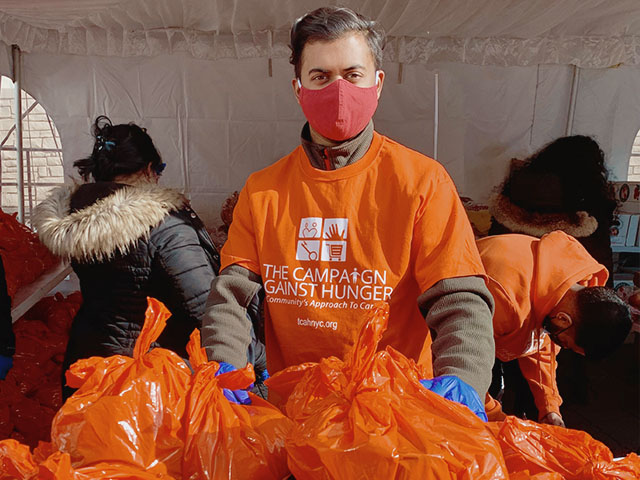COVID Pandemic to Double World Hunger, Report Finds

GENEVA – A new report warns more than one-quarter-billion people around the world could face acute hunger because of the economic impact of the COVID-19 pandemic. The 2020 Global Report on Food Crises is produced by the World Food Program, Food and Agriculture Organization and 14 other agencies.
Prior to the COVID-19 pandemic, the report said 135 million people around the world were suffering from severe hunger. But authors of the report warn the pandemic will more than double that number by the end of the year if swift, vigorous action is not taken.
The report cites the main drivers of world hunger as conflict, climate change and economic crises. It says Africa is the worst affected continent in the world, followed by Asia and Latin America. It adds the majority of people suffering acute food insecurity, some 77 percent, are in countries of conflict.

A volunteer prepares bags with groceries for delivery at The Campaign Against Hunger food pantry, Thursday, April 16, 2020, in the Bedford-Stuyvesant neighborhood of the Brooklyn borough of New York.
World Food Program Chief Economist Arif Husain tells VOA people in countries such as Yemen, the Democratic Republic of Congo, Afghanistan, Syria, and South Sudan run the greatest risks.
“If we do not get to them, their lives already hang by a thread,” said Husain. “So, if we do not get to them, they will pay the ultimate price… Every given day in normal times there are about 21,000 people who lose their lives to hunger. Every given day — not COVID — every given day, a child dies every 10 seconds because of malnutrition.”
Husain says quick action must be taken to assist people in those and other countries at risk. He says trade and supply chains must act and food and other necessary supplies must be prepositioned. He says aid agencies can and must help governments that have safety nets and protection plans scale up those programs.
“We should not forget about the agricultural sector,” said Husain. “We have good stocks right now, but if the supply chain stops to work and seeds and fertilizer and other things are not getting to farmers or farmers cannot go to their field, what will happen next year. Next year, we will actually have a shortage of food and that is something we must avoid.”
U.N. aid agencies anticipate they will need between $10 and $12 billion this year to tackle the expected food crisis. But, they say, they need $1.9 billion immediately to make sure enough food is in place to assist people over the next three months, especially those who are trapped in war zones.





